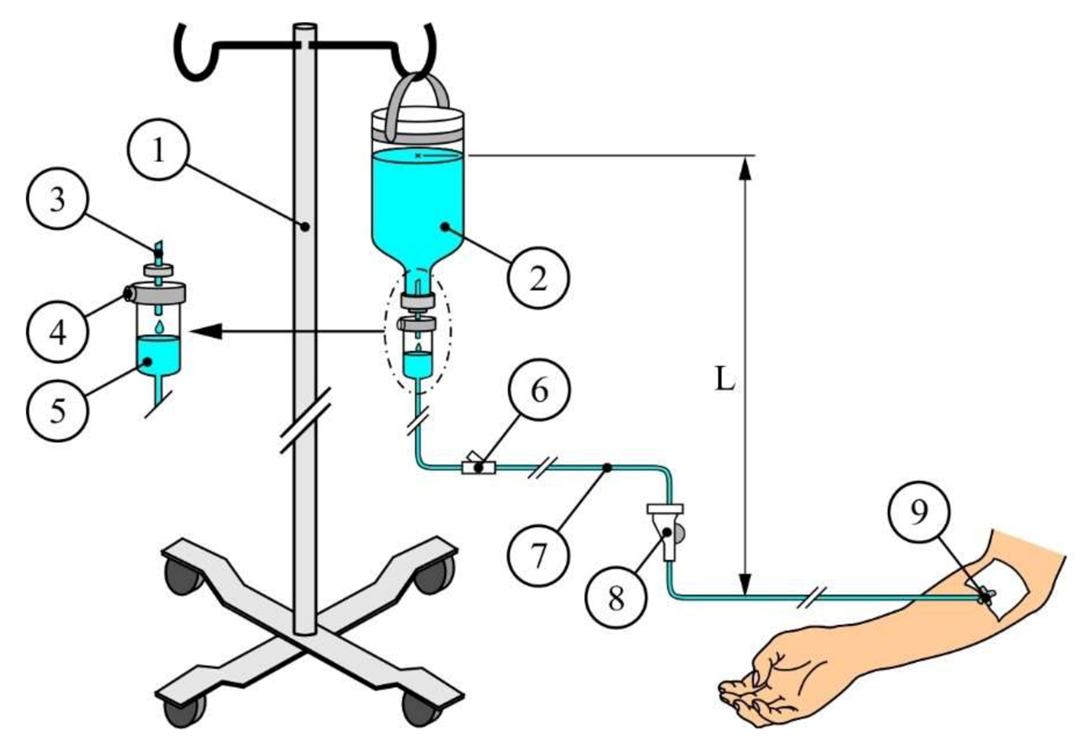A severely dehydrated client has come in for rapid administration of IV fluids. Which of the following solutions is the best solution for rapid infusion?
Normal Saline
1/2 Normal Saline
D5W (5% Dextrose in Water)
D5 1/2 Normal Saline
The Correct Answer is A
Choice A reason: This is a correct answer because normal saline is an isotonic solution, which means it has the same osmolarity as the blood plasma. It does not cause any fluid shifts between the intracellular and extracellular compartments, and it can help restore the fluid balance and the blood pressure of the dehydrated client.
Choice B reason: This is not a correct answer because 1/2 normal saline is a hypotonic solution, which means it has a lower osmolarity than the blood plasma. It causes fluid to shift from the extracellular to the intracellular compartment, which can lead to cellular swelling and edema. It is not suitable for rapid infusion, as it can cause hemolysis and hypotension.
Choice C reason: This is not a correct answer because D5W (5% Dextrose in Water) is an isotonic solution when it is in the IV bag, but it becomes hypotonic once it enters the body, as the dextrose is rapidly metabolized and only water remains. It causes fluid to shift from the extracellular to the intracellular compartment, which can lead to cellular swelling and edema. It is not suitable for rapid infusion, as it can cause hemolysis and hypotension.
Choice D reason: This is not a correct answer because D5 1/2 normal saline is a hypertonic solution, which means it has a higher osmolarity than the blood plasma. It causes fluid to shift from the intracellular to the extracellular compartment, which can lead to cellular shrinkage and dehydration. It is not suitable for rapid infusion, as it can cause hypernatremia and fluid overload.

Nursing Test Bank
Naxlex Comprehensive Predictor Exams
Related Questions
Correct Answer is A
Explanation
Choice A reason: Fried chicken is a food that the nurse should tell the client to avoid eating. Fried chicken is high in fat, which can trigger or worsen the symptoms of GERD. Fat can relax the lower esophageal sphincter, which is the muscle that prevents the stomach acid from flowing back into the esophagus. Fat can also delay the stomach emptying, which can increase the pressure and acid production in the stomach.
Choice B reason: Nonfat milk is not a food that the nurse should tell the client to avoid eating. Nonfat milk is low in fat, which can help prevent or reduce the symptoms of GERD. Nonfat milk can also provide calcium and protein, which are essential nutrients for the client's health.
Choice C reason: Bananas are not a food that the nurse should tell the client to avoid eating. Bananas are low in acid, which can help neutralize the stomach acid and soothe the esophagus. Bananas are also rich in fiber, which can promote digestion and prevent constipation.
Choice D reason: Oatmeal is not a food that the nurse should tell the client to avoid eating. Oatmeal is a whole grain that is low in fat and high in fiber, which can help prevent or reduce the symptoms of GERD. Oatmeal can also absorb the excess acid in the stomach and prevent it from refluxing into the esophagus.
Correct Answer is C
Explanation
Choice A reason: This is not a correct instruction because drinking a carbonated beverage before bed can worsen the reflux symptoms by increasing the gastric pressure and the production of gas.
Choice B reason: This is not a correct instruction because increasing fatty foods can worsen the reflux symptoms by delaying the gastric emptying and relaxing the lower esophageal sphincter (LES), which allows the stomach acid to flow back into the esophagus.
Choice C reason: This is a correct instruction because elevating the head of the bed when sleeping can help prevent the reflux symptoms by using gravity to keep the stomach contents from flowing back into the esophagus.
Choice D reason: This is not a correct instruction because eating dinner late in the evening can worsen the reflux symptoms by increasing the amount and acidity of the stomach contents, which can easily flow back into the esophagus when lying down. The client should avoid eating within 3 hours of bedtime.
Whether you are a student looking to ace your exams or a practicing nurse seeking to enhance your expertise , our nursing education contents will empower you with the confidence and competence to make a difference in the lives of patients and become a respected leader in the healthcare field.
Visit Naxlex, invest in your future and unlock endless possibilities with our unparalleled nursing education contents today
Report Wrong Answer on the Current Question
Do you disagree with the answer? If yes, what is your expected answer? Explain.
Kindly be descriptive with the issue you are facing.
